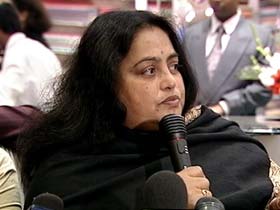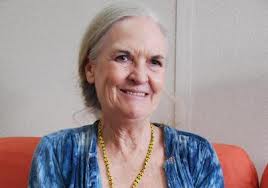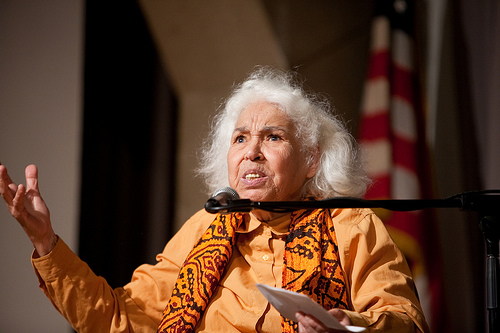Today is November 25. The world is celebrating the day as the International Day for the Elimination of Violence against Women. Such crimes against women as molestation, rape, trafficking and prostitution are rampant in the underbelly of civilization across the world. Journalists, authors and activists have, for ages, put up fight in the face of violence against women, with their pens which are mightier than swords. They are travelers too. Some travel in search of evidence to the cases of women’s exploitation in name of customs, religion or law. Some travel in trace of the rackets that traffic women across the borders of countries. Some travel in quest of real life stories about crimes against women in society. Some travel with a view to gathering mass support for their noble initiatives in defense of women. Today, Indian Eagle salutes these brave hearts and noble souls by highlighting the efforts made by 5 great authors in form of books on violence against women in the world.
Siddharth Kara
 Sex Trafficking: Inside the Business of Modern Slavery is a revolutionary non-fiction about the crimes of violence against women by Siddharth Kara, an Indian American author and activist. Published by Columbia University in the year 2009, Sex Trafficking: Inside the Business of Modern Slavery is his first great attempt to explore the underbelly of modern slavery, and expose sex trafficking worldwide. The heart-rending stories of a few victims and their sexual exploitation, with focus on the local as well as global factors fuelling the growth of the slavery and sex trafficking business, have made Siddharth Kara’s book more powerful than a sword.
Sex Trafficking: Inside the Business of Modern Slavery is a revolutionary non-fiction about the crimes of violence against women by Siddharth Kara, an Indian American author and activist. Published by Columbia University in the year 2009, Sex Trafficking: Inside the Business of Modern Slavery is his first great attempt to explore the underbelly of modern slavery, and expose sex trafficking worldwide. The heart-rending stories of a few victims and their sexual exploitation, with focus on the local as well as global factors fuelling the growth of the slavery and sex trafficking business, have made Siddharth Kara’s book more powerful than a sword.
Julian Sher
 Penned by Julian Sher about the practice of violence against women in the American society, Somebody’s Daughter: The Hidden Story of America’s Prostituted Children and the Battle to Save Them is a scathing attack on the thriving business of trafficking of American teen girls. Julian Sher is an award-winning investigative journalist, TV documentary writer and human right activist from Canada. The book lifts the mask off the face of America by revealing that thousands of trafficked teen girls for prostitution are America’s forgotten, dejected children. They are forced by inhuman pimps into rampant sex trade in the casinos and street corners of American cities. Julian Sher’s Somebody’s Daughter has taken the American civilization by storm.
Penned by Julian Sher about the practice of violence against women in the American society, Somebody’s Daughter: The Hidden Story of America’s Prostituted Children and the Battle to Save Them is a scathing attack on the thriving business of trafficking of American teen girls. Julian Sher is an award-winning investigative journalist, TV documentary writer and human right activist from Canada. The book lifts the mask off the face of America by revealing that thousands of trafficked teen girls for prostitution are America’s forgotten, dejected children. They are forced by inhuman pimps into rampant sex trade in the casinos and street corners of American cities. Julian Sher’s Somebody’s Daughter has taken the American civilization by storm.
Sushmita Banerjee
 A Kabuliwala’s Bengali Wife is the autobiography of Sushmita Banerjee from Kolkata, India. The book is a touching account of her journey from India to Afghanistan in 1988, her experience of violence against women in the patriarchal society of Afghanistan and her encounter with the ruthlessness of Taliban militants. The autobiographical book touches upon how women’s right to dignity, basic living and medical care are trampled under the unjust Taliban laws. The book also pictures her tireless efforts to educate and empower the poor Afghani women. Sushmita Banerjee’s death in the hands of Taliban militants is the latest case of violence against women in Afghanistan. Escape from the Taliban is a celluloid adaptation of the book.
A Kabuliwala’s Bengali Wife is the autobiography of Sushmita Banerjee from Kolkata, India. The book is a touching account of her journey from India to Afghanistan in 1988, her experience of violence against women in the patriarchal society of Afghanistan and her encounter with the ruthlessness of Taliban militants. The autobiographical book touches upon how women’s right to dignity, basic living and medical care are trampled under the unjust Taliban laws. The book also pictures her tireless efforts to educate and empower the poor Afghani women. Sushmita Banerjee’s death in the hands of Taliban militants is the latest case of violence against women in Afghanistan. Escape from the Taliban is a celluloid adaptation of the book.
Lindsey Collen
 The Rape of Sita by Lindsey Collen is a fictional work with touches of biting reality regarding the Mauritian society. Inspired by the eventful life of Sita, a mythological character in the Ramayana, the protagonist of the fiction has been portrayed and her struggle to overcome the ordeal of having been raped has been depicted. Through the sensitive portrayal of the real life character Sita and her suffering, Lindsey Collen has taken upon a few core social and political issues to a new high. The Rape of Sita is a take on violence against women in Mauritius.
The Rape of Sita by Lindsey Collen is a fictional work with touches of biting reality regarding the Mauritian society. Inspired by the eventful life of Sita, a mythological character in the Ramayana, the protagonist of the fiction has been portrayed and her struggle to overcome the ordeal of having been raped has been depicted. Through the sensitive portrayal of the real life character Sita and her suffering, Lindsey Collen has taken upon a few core social and political issues to a new high. The Rape of Sita is a take on violence against women in Mauritius.
Nawal El Saadawi
 Published in Arabic in 1975, Women at Point Zero is a slice of real life captured by Nawal El Saadawi through powerful and sensitive words. The book recounts the inexplicable suffering of a female prisoner named Firdaus from deprived childhood to prostitution through a series of real life events including iniquities and injustices by manipulative men in the patriarchal society. To defend herself, she stabbed a pimp to death, which she did not consider a crime in contrast to the law. She accepted the death sentence without making an appeal in her defense. The author Nawal El Saadawi had encountered Firdaus before her execution in Qanatir Prison.
Published in Arabic in 1975, Women at Point Zero is a slice of real life captured by Nawal El Saadawi through powerful and sensitive words. The book recounts the inexplicable suffering of a female prisoner named Firdaus from deprived childhood to prostitution through a series of real life events including iniquities and injustices by manipulative men in the patriarchal society. To defend herself, she stabbed a pimp to death, which she did not consider a crime in contrast to the law. She accepted the death sentence without making an appeal in her defense. The author Nawal El Saadawi had encountered Firdaus before her execution in Qanatir Prison.
“Woman is a collective identity of a mother, a sister, a wife, a daughter, a friend and a human being. The power of this collective existence is immeasurable and indomitable if it wakes up once. Let’s respect women for the good of civilization instead of challenging their power and existence.” – Indian Eagle.







